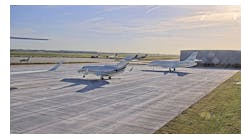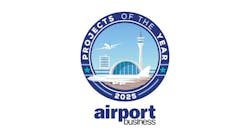Can You Bring a Part 16 Complaint After an Airport Sponsor Voluntarily Corrects a Grant Assurance Violation?
Airport tenants can use a Part 16 complaint to hold federally funded Airport Sponsors (as defined below) accountable when they violate their obligations under the federal grant assurances (“Grant Assurances”). Generally, Part 16 complaints are limited to where an Airport Sponsor is engaged in a current and ongoing violation of its Grant Assurance obligations. If there is not a current/ongoing violation of the Grant Assurances, then a tenant’s Part 16 complaint becomes moot. Mootness is legal jargon for saying that because the Airport Sponsor’s improper conduct stopped: (i) the tenant is no longer injured; (ii) a Part 16 complaint cannot provide a remedy; and (iii) the complaint must be dismissed.
In light of this limitation, what happens if an Airport Sponsor stops its wrongful conduct while a tenant’s Part 16 complaint is pending, but the tenant justifiably fears that the wrongful conduct will resume after the complaint is dismissed? Or, what happens if an Airport Sponsor commits a temporary Grant Assurance violation that causes a tenant meaningful harm, but ceases the violation before the tenant can bring a Part 16 complaint? Is an airport tenant left without any recourse due to the mootness hurdle?
Not necessarily. There are two relevant exceptions that may allow airport tenants to clear the mootness hurdle and proceed with a Part 16 complaint: (1) voluntary cessation; and (2) wrongful conduct capable of repetition, yet evading review. This article examines those exceptions.
FAA Grant Assurances
Airport owners, sponsors, or other entities (“Airport Sponsors”) that receive federal funding from the Federal Aviation Administration (“FAA”) and/or receive title to federal property for airport purposes must agree to be bound by the FAA’s Grant Assurances. A copy of the Grant Assurances can be found at: https://www.faa.gov/airports/aip/grant_assurances/media/airport-sponsor-assurances-aip.pdf. Moreover, FAA Order 5190.6B, the FAA Airport Compliance Manual discusses the obligations set forth in the Grant Assurances, addresses the application of the Grant Assurances in the operation of public-use airports, and facilitates interpretation of the Grant Assurances by FAA personnel. For more information about Grant Assurances and how they impact our nation’s airports, see “What Are Federal Grant Assurances and How Do They Impact our Nation’s Airports?” Airport Business July/August 2021.
Part 16 Complaints
If an Airport Sponsor violates its obligations under the Grant Assurances, an airport tenant that is harmed as a result can file a formal complaint with the FAA pursuant to Part 16 of the Federal Aviation Regulations. Outlining the numerous procedural and substantive requirements for filing a Part 16 complaint exceeds the scope of this article. That being said, however, two necessary prerequisites to filing a Part 16 complaint are: (1) that the airport tenant be “directly and substantially affected” by the Airport Sponsor’s noncompliance; and (2) the airport tenant has engaged in good faith efforts to resolve the dispute informally. If a Part 16 complaint is successful, remedies ordered by the FAA could include: (1) a cease-and-desist order; (2) an order terminating eligibility for grant funds; (3) an order directing the refund of fees unlawfully collected; and/or (4) an order directing the Airport Sponsor to pay back grant funds.
The FAA Recognizes The Mootness Hurdle
The mootness hurdle is well established in FAA’s administrative decisions. The FAA has held that “in addressing allegations of noncompliance, the FAA will make a determination as to whether an airport sponsor is currently in compliance with the applicable federal obligations,” and “not whether an airport was in violation three years ago or might be in the future.” Jimsair Aviation Servs., Inc., Complainant, Final Agency Decision and Order No. 16-06-08, 2007 WL 2399862, at *6, *10 (Aug. 9, 2007); see also Wilson Air Ctr., LLC Complainant, Final Agency Decision and Order No. 16-99-10, 2001 WL 1085348, at *4 (Aug. 30, 2001). The FAA has also held that it “will consider the successful action by the airport to cure any alleged or potential past violation of applicable federal obligation to be grounds for dismissal of such allegations.” Id., *6.
Exception #1 to the Mootness Hurdle – Voluntary Cessation
The United States Supreme Court recognizes a voluntary cessation exception to the mootness hurdle. The Supreme Court has stated: “[V]oluntary cessation of allegedly illegal conduct does not deprive the tribunal of power to hear and determine the case, i.e., does not make the case moot.... A controversy may remain to be settled in such circumstances ... e.g., a dispute over the legality of the challenged practices.... The defendant is free to return to his old ways. This, together with a public interest in having the legality of the practices settled, militates against a mootness conclusion. For to say that the case has become moot means that the defendant is entitled to a dismissal as a matter of right.... The courts have rightly refused to grant defendants such a powerful weapon against public law enforcement.” (Citations omitted.) United States v. W. T. Grant Co., 345 U.S. 629, 632 (1953). The Supreme Court has further acknowledged that “[t]he case may nevertheless be moot if the defendant can demonstrate that ‘there is no reasonable expectation that the wrong will be repeated.’ The burden is a heavy one.” Id.
This exception may provide a way to clear the mootness hurdle for a Part 16 complaint. For example, assume that an Airport Sponsor gives one fixed base operator (“FBO”) tenant an unlawful exclusive right to provide maintenance at an airport, to the exclusion of another FBO tenant. The other FBO is harmed by the Airport Sponsor’s granting an exclusive right and files a Part 16 complaint. Thereafter, the Airport Sponsor voluntarily ceases the wrongful conduct and seeks to dismiss the Part 16 complaint as moot. In these circumstances, the aggrieved airport FBO tenant should oppose the dismissal arguing that the matter is not moot because the Airport Sponsor is free to continue the same wrongful conduct after the Part 16 complaint is dismissed.
In another example, assume that an Airport Sponsor hosts an annual air show. Assume that for the annual air show, the Airport Sponsor provides a temporary unlawful exclusive right to an FBO tenant to provide fuel and other services for the duration of that air show, to the exclusion of all other FBO tenants. The Airport Sponsor is certain to stop such wrongful conduct before an aggrieved FBO tenant can file a Part 16 complaint. The aggrieved FBO tenant could potentially proceed with a Part 16 complaint, however, and argue that it is not moot because the Airport Sponsor voluntarily ceased the wrongful conduct and is likely to repeat the same conduct during the annual air show in the future.
It should be noted that the voluntary cessation exception to the mootness doctrine does not appear to have been litigated before the FAA or federal courts in the context of Part 16 complaints. Nevertheless, for the reasons discussed above it can serve as a useful tool in dealing with mootness hurdle when seeking to hold Airport Sponsors accountable for violating Grant Assurance obligations.
Exception #2 to the Mootness Hurdle – Capable of Repetition, Yet Evading Review
Another exception to the mootness hurdle recognized by the Supreme Court is the capable of repetition, yet evading review exception. This exception applies where: “(1) the challenged action was in its duration too short to be fully litigated prior to its cessation or expiration, and (2) there was a reasonable expectation that the same complaining party would be subjected to the same action again.” Weinstein v. Bradford, 423 U.S. 147, 149 (1975). But a “mere physical or theoretical possibility” that the same action will occur again is insufficient. Murphy v. Hunt, 455 U.S. 478, 482 (1982).
This exception was successfully applied to defeat an Airport Sponsor’s mootness claim in Royal Air, Inc., Complainant, Final Agency Decision and Order No. 16-02-06, 2004 WL 7325970. In Royal Air, Inc. the complainant FBO tenant brought a Part 16 complaint alleging, among other things, that the Airport Sponsor unlawfully discriminated against it in violation of Grant Assurance 22. Complainant alleged that the Airport Sponsor allowed two competing FBO tenants to operate in violation of the minimum standards while enforcing the minimum standards against the Complainant. Id., *1. While the litigation was ongoing, both competing FBO tenants stopped providing aeronautical services at the airport. Id., *3-4. The Airport Sponsor argued that the Part 16 complaint became moot and should be dismissed. Id., *14. In determining that the capable of repetition, yet evading review exception applied, the FAA reasoned that: “The focus is on current compliance, but a necessary part of current compliance is a sponsor's actions in carrying out its federal obligations. The Respondent's former actions, as well as current actions, shape its airport compliance efforts regardless of subsequent developments in tenancy at the airport.” Id. As a result, the FAA declined to dismiss the Part 16 complaint.
This exception also is likely to apply to a circumstance like the air show exclusive right hypothetical raised above. Specifically, a one-week air show is too short in its duration to be litigated before the wrongful conduct ceases. Additionally, if the air show is an annual event, there certainly is a reasonable expectation that the conduct will occur again.
Conclusion
Airport tenants are not necessarily left without recourse if an Airport Sponsor creates a mootness hurdle to a Part 16 complaint by voluntarily correcting or ceasing a Grant Assurance violation. There are two relevant exceptions that may allow airport tenants to clear the mootness hurdle and proceed with a Part 16 complaint: (1) voluntary cessation; and (2) wrongful conduct capable of repetition, yet evading review. These exceptions provide airport tenants with useful tools to hold Airport Sponsor accountant when it commits temporary and/or recurring Grant Assurance violations. When airport tenants cannot overcome the mootness hurdle, a Part 13 complaint may be an alternative remedy. If you encounter Grant Assurance violations by your Airport Sponsor, contact aviation counsel to discuss your options.
Paul Grocki is an attorney with the Law Offices of Paul A. Lange, LLC with offices in New York and Connecticut. He focuses his practice primarily on litigation, insurance, and aircraft transactional matters. Paul also represents aircraft owners and fixed based operators (“FBOs”) in connection with negotiation of management, charter agreements, various types of ground leases, and airport disputes.





